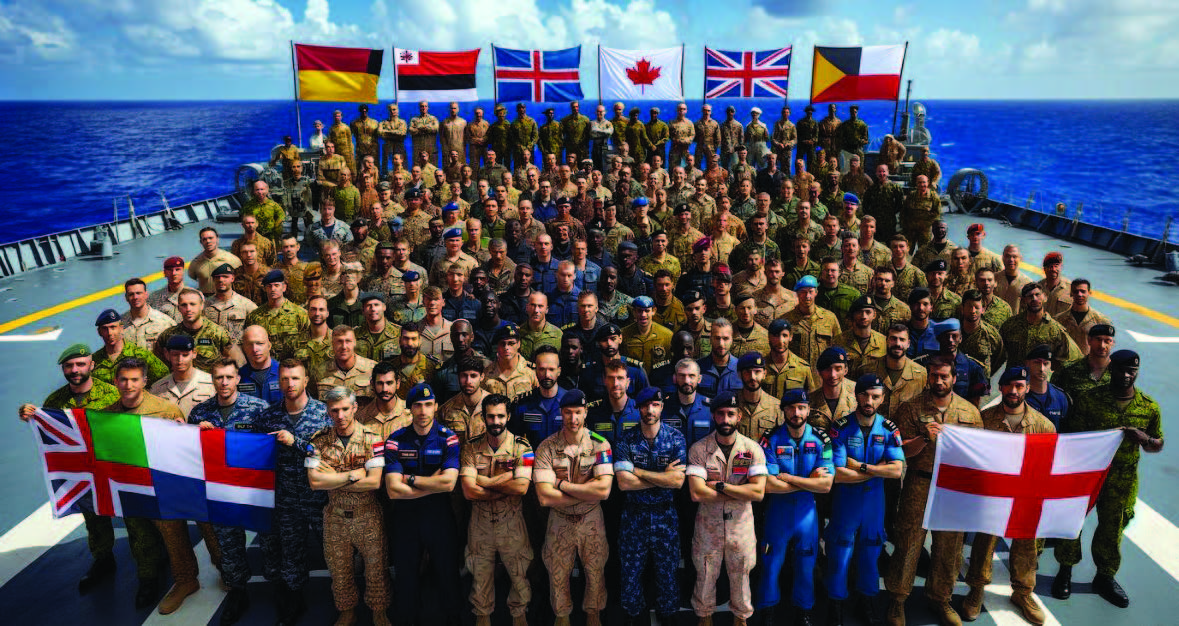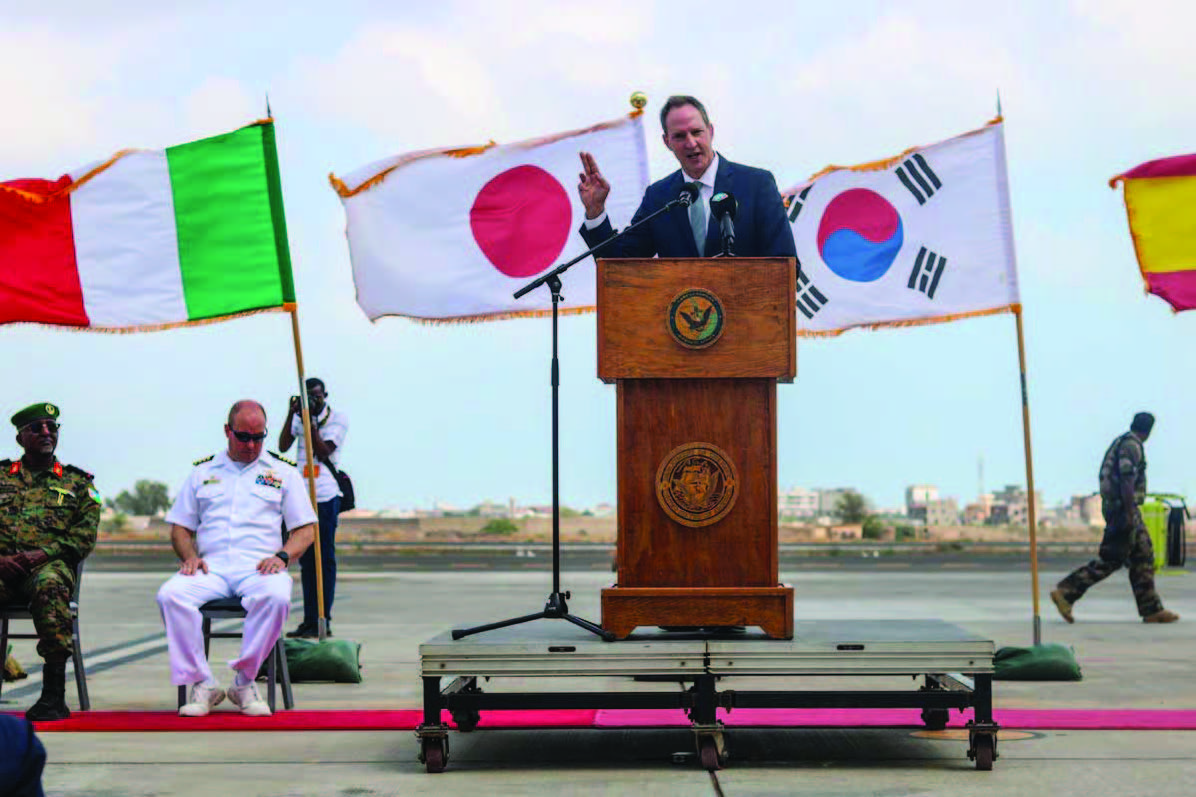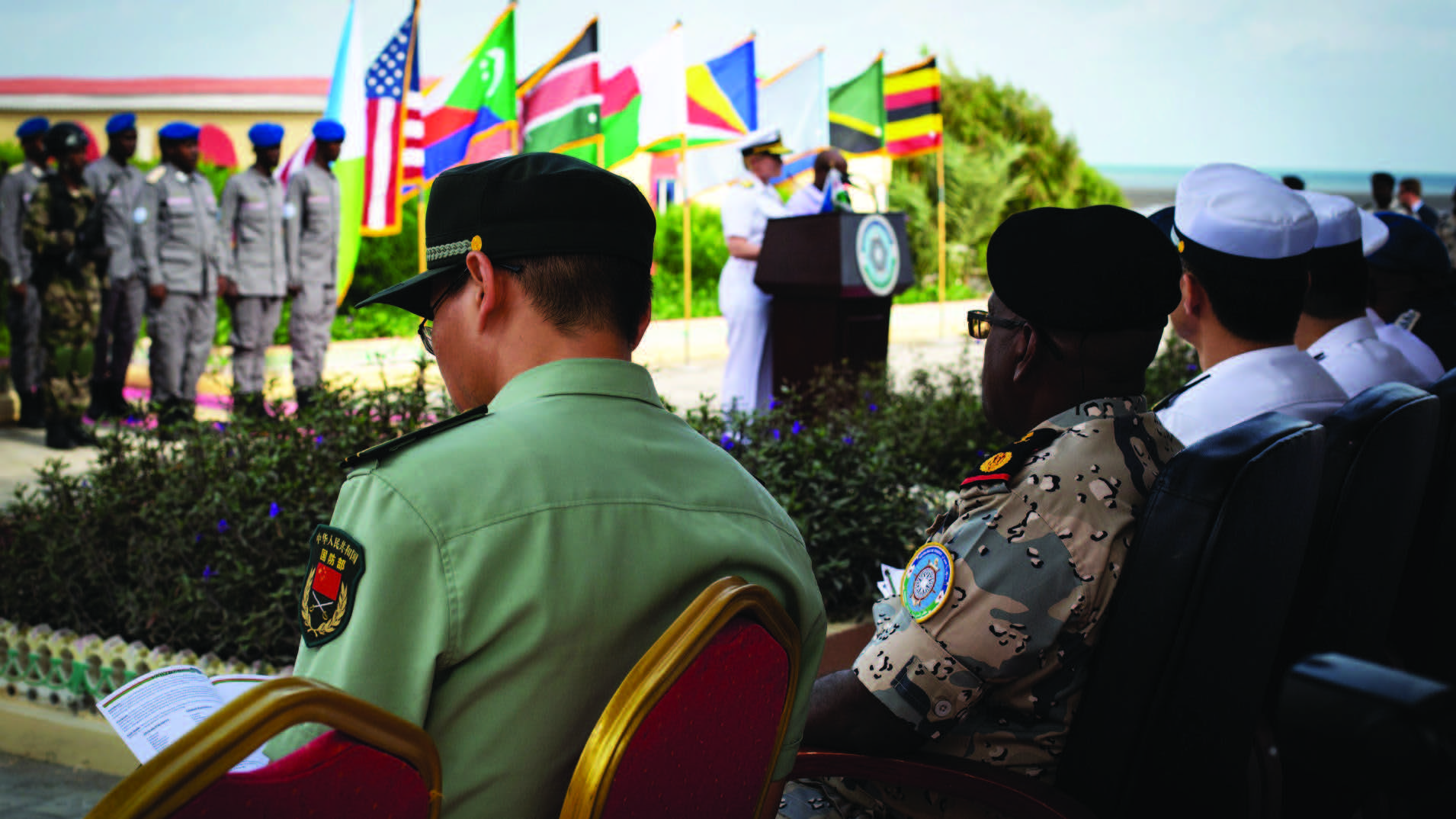
The proliferation of foreign military bases in the Horn of Africa (HOA) region has become a notable trend in recent years, driven by various geopolitical, security, and economic interests. This trend has continued despite the African Union Peace and Security Council (AUPSC) warnings urging member states to exercise caution regarding the spread of foreign military bases in the continent, including the establishment of new ones. Additionally, AUPSC expressed concerns regarding the absence of mechanisms to regulate bilateral initiatives that lead to the establishment of such bases. The HoA region hosts about 11 foreign military bases, with Djibouti being the epicenter. It hosts an estimated 8 foreign military bases with the presence of troops from France, the United States of America (USA), Italy, China, Japan, Spain, Germany, and Saudi Arabia[1]. This concentration of military bases in Djibouti and the broader HoA region yields complex and multifaceted implications for the region’s security dynamics and fragility. This paper aims to evaluate the impacts of the increased military presence in the HoA region on regional security and stability.
The HoA region holds strategic significance for global powers due to its proximity to key global regions and critical maritime routes, notably the Bab-el-Mandeb strait, crucial for oil and gas shipping. This route serves as the quickest and most efficient path for shipping goods to and from European, Middle East, and Asian countries. To safeguard the route, global powers have established military bases in the region. Additionally, the region faces terrorism and piracy threats from extremist groups such as Al-Shabaab and Houthi rebels, prompting counterterrorism efforts by foreign powers like the USA and its allies. Consequently, these nations have established military bases in the region to offer training and assistance to local forces on counter terrorism operations. Furthermore, the region’s abundance of natural resources, including oil, gas, minerals, and fisheries, makes it attractive for investment and economic development. Foreign powers therefore seek to establish military bases to protect their economic interests and secure access to vital resources.
Upsurge in the establishment of foreign military bases in the HoA region has the potential to exacerbate existing tensions among regional powers and fuel proxy conflicts thereby intensifying regional instability. The geostrategic importance of the region has sparked competition among global powers seeking to project their influence. For instance, China’s expanding military presence in the region and its increased investments in the HoA have sparked geopolitical competition from countries such as the USA, Japan, and India who want to counter China’s footprint in the region. Additionally, Japan has strategically used its Free and Open Indo-Pacific Strategy (FOIPS), initiated in 2016, to counter China’s expanding presence and infrastructure investments in the HoA, through the Belt and Road Initiative (BRI). This geopolitical approach aimed at mitigating China’s influence has resulted in the formation of a maritime coalition involving the USA, and India, thus intensifying regional competition. Further, Russia is also interested in expanding its influence in the region in a bid to revitalize its global naval capabilities and bolster its geo-strategic foothold.

To this end,in 2020, Russia signed a 25-year deal with Sudan to establish its naval base in Port Sudan. However, Russia’s efforts to broaden its presence in the region, have encountered challenges, with countries such as the USA actively working to impede its expansion. For example, Russia’s attempt to establish a military base in Djibouti faced opposition from the USA, resulting in Djibouti refraining from granting permission. This great power competition has therefore lead to diplomatic tensions and intricate relationships between the HoA countries and foreign militaries.
The rise of foreign military bases in the HoA region has had complex implications for regional security dynamics. On one hand, military bases have enhanced deterrence capabilities and provided support for counterterrorism operations, thereby contributing to the stability and security of the region. On the other hand, their presence has inadvertently contributed to regional destabilization by aggravating local grievances, hence leading to insurgency movements, in countries such as Somalia. Sometimes, local populations may view the presence of foreign troops as an infringement on their sovereignty, leading to mistrust and opposition. For instance, the Al-Shabaab terror group in Somalia has stirred up anti-Western sentiments and advocated against USA counterterrorism operations in the region. It has used this narrative to recruit and fuel extremism in Somalia and the HoA region.

Additionally, increase in foreign military bases in the HoA region has introduced tensions originating from other regions, such as the Middle East, to the region,thereby posing a threat to regional security and stability. Countries like Saudi Arabia, the United Arab Emirates (UAE), and the USA have launched operations from their military bases set up in the HoA region to combat Houthi rebels in Yemen and counter Iranian influence in the region. Despite some shared interests among these countries, there exists a complex interplay of power dynamics and competition that further complicates the situation. Saudi Arabia and the UAE have been engaged in a regional power struggle, particularly evident in their differing approaches to conflicts in Yemen. Similarly, Turkey and Qatar have adopted positions that diverge from those of Saudi Arabia and the UAE. Qatar’s support for groups like the Muslim Brotherhood has further strained its relations with other Gulf States, exacerbating tensions within the region. This inter-regional competition and power play have the effect of transferring tensions from other conflict zones to the HoA.
The growth of military bases in the HoA region also poses substantial obstacles to efforts aimed at resolving conflicts. As numerous foreign military entities compete to influence responses to regional issues, the multiplicity of their actions overcrowd the security environment. This runs the risk of undermining the sovereignty and self-governance of local governments, hence hampering opportunities for reaching negotiated agreements and African-led solutions. Additionally, the militarization of conflicts has perpetuated cycles of violence and worsened humanitarian crises, further destabilizing fragile states in the region.
Increased military bases in HoA has potential of weakening regional security cooperation. While hosting military bases provides economic benefits and security guarantees for host countries, the presence of multiple foreign military forces can hinder regional cooperation endeavors and escalate pre-existing interstate tensions. This risks destabilizing collective security arrangements and obstructing initiatives aimed at tackling shared regional challenges. For Instance, the East African Community (EAC) Protocol on Cooperation in Defence is a pivotal instrument aimed at fostering peace, security, and stability within the region. It aims to enhance collaboration among partner states in defense matters through the development and pursuit of policies and programs. It holds significant potential, particularly in addressing pressing security threats like terrorism and transnational organized crimes, which are concerns shared by the geopolitical actors with military bases in the region. However, the effective implementation of this protocol faces challenges, such as delays in the ratification of the mutual defense pact by all partner states in the region.
In conclusion, the rise of foreign military bases in the HoA presents challenges for regional security and fragility. Their presence has potential of worsening existing tensions in the region, weakening regional security cooperation frameworks, and undermining regional stability. Their presence also undermines continental efforts in responding effectively to ongoing peace and security threats. The African Union (AU) and the Intergovernmental Authority on Development (IGAD) should heighten their support efforts to build the capacity of regional governments and security forces to address security challenges collectively. Additionally, it is imperative for the EAC Chairperson, in conjunction with the EAC Secretary-General, to advocate for the full implementation of the EAC Protocol on Cooperation in Defence. By doing so, member countries can collectively address security issues, thus mitigating the necessity for foreign military bases to safeguard their interests. This approach not only reduces reliance on support from external powers but also fosters autonomy and development of HoA countries, ultimately contributing to regional stability and prosperity.
[1] https://issafrica.org/iss-today/proceed-with-caution-africas-growing-foreign-military-presence
